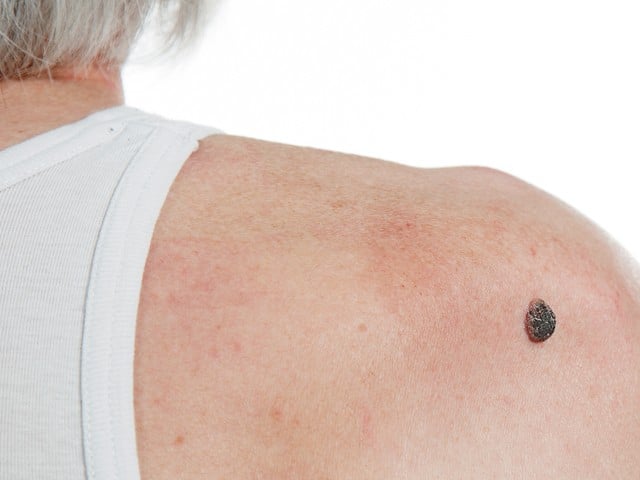
Squamous cell carcinoma, also known as squamous cell cancer, is a nonmelanoma skin cancer. It starts in the flat cells in the outer layer of the epidermis and has many identifiable features. Red scaly patches, open sores without a raised border, brown spots, and other skin abnormalities may indicate the presence of this skin cancer and should be evaluated.
Fortunately, squamous cell carcinoma can usually be removed or treated. Therefore, it has a high survival rate. Here is more information about the outlook for this nonmelanoma skin cancer.
Squamous Cell Carcinoma Survival Rate
Squamous cell carcinoma is rarely fatal, according to the American Cancer Society. It’s estimated that 2,000 people die from basal and squamous skin cancers each year in the US. And the number of deaths from basal and squamous skin cancers has recently decreased.
That said, it is difficult to determine the exact survival rate of squamous cell carcinoma. This is because not all cases of squamous cell carcinoma are reported. Some patients who are immunocompromised or elderly may never get a diagnosis, which leaves many incidences of this type of cancer unreported and undetected. However, with the removal of skin cancer, patients significantly increase their chances of survival, which is why early detection is key!
Squamous Cell Carcinoma Treatments
You may have several different treatment options if you have been diagnosed with squamous cell carcinoma. These options will likely vary depending on the size and location of the cancer. Talk to our skilled team for recommendations tailored to your unique situation.
Treatments for squamous cell carcinoma include:
- Surgery
- Radiation therapy
- Topical drugs
- Laser surgery
- Photodynamic therapy
- Targeted drugs
- Immunotherapy
What Should I Do if I Suspect Squamous Cell Carcinoma?
Squamous cell carcinoma is highly treatable when caught early. Regularly check your skin for any abnormalities, and contact a dermatologist right away if you notice anything unusual.
At Harris Dermatology, Dr. Brian A. Harris, Dr. H. Ross Harris, and Dr. Keith A. Harris of Fort Myers and Naples, FL, perform annual skin cancer screenings and biopsies when needed. Call one of our two offices to request a skin check with an experienced member of our team.

